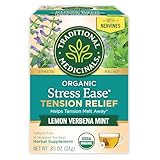Zinc is part of the treatment protocols of Dr. Zeb Zelenko, Dr. Peter McCullough [10], and the FLCCC’s I-MASK+ Prevention and Early Outpatient Treatment Protocol and MATH+ Hospital Treatment Protocol for COVID-19, with the dose ranging from 30 to 220 mg a day depending on the protocol.
A 2010 study showed that zinc inhibits the RNA polymerase enzymes needed for coronavirus replication. [1] But zinc alone is not enough. Other substances called ionophores are necessary to get zinc into the cells. The ionophores are hydroxychloroquine [2], quercetin[3], and possibly ivermectin [4].
Zinc has also shown efficacy against other respiratory viruses like influenza [5] and the Respiratory Syncytial Virus[6].
Zinc supports the Immune Response in the Respiratory System
Zinc improves the host’s defense by maintaining the lining of the respiratory tract. Adequate zinc also assures the regulation of the immune response to prevent cytokine storms.
Immune cells such as monocytes, neutrophils, T and B-lymphocytes, dendritic cells, and natural killer (NK) cells depend on zinc for growth and function.
Zinc can enhance the proliferation of CD8 + cytotoxic T lymphocytes increase, which are crucial in the immune response to respiratory viruses.
The consequences of Zinc deficiency
Zinc deficiency happens and predisposes to viral infections by:
- Impairing the Th1 T-helper cell function needed for cell-mediated response against viruses.
- Decreased production of the different cytokines needed to fight infections like (interleukin ) IL-1, IL-2, IL-4, and interferon-gamma IFN-γ
- Shifts Th1/Th2 balance to Th2, which counters the antimicrobial effect of Th1
- Reduce the antibody-producing B cells
- Reduces the killing activity of Natural Killer cells
- Reduce CD8+ cytotoxic T cell population[7]
Research has shown that Acute Respiratory Syndrome, length of hospital stay, and mortality increases in COVID-19 patients with zinc deficiency.[8] In contrast, people with adequate since levels have higher survival.[9]
How effective is Zinc against COVID-19?
Below is from c19zinc.com and summarizes all the studies about the use of zinc in COVID-19.

Prevention and Treatment Protocols
Let’s play the game: Look for the zinc in the protocols below.
Front Line Critical COVID-19 Critical Care Alliance
Prevention Protocol

Early Treatment Protocol

Dr. McCullough’s Protocol

Dr. Vladimir Zelenko

The complete protocols and explanations are in the links embedded in the titles. Zinc requires Quercetin which is also over the counter.
Don’t Get Sick!
Knowledge about Covid-19 is rapidly evolving. Stay current by subscribing. Feel free to share and like.
If you find value in the articles, please consider donating to show your support.
Related:
- Aspirin for the early treatment of COVID-19
- Nigella Sativa or Black Seed, Black Cumin for COVID-19
- The anti-COVID-19 properties of Quercetin
- Echinacea for the Prevention and Treatment of Viral Respiratory Infections and COVID-19
- Curcumin for the Early Treatment of COVID-19
- What makes Ivermectin a kick-ass antiviral?
- The anti-COVID-19 properties of Quercetin
- Melatonin’s Multiple Actions Against COVID-19
- Nasal Povidone Iodine Works Great for the Prevention and Early Treatment of COVID-19!
- Vitamin C and COVID-19
- Zinc Deficiency Impairs the Immune System
- Adequate Vitamin D Prevents Severe COVID-19
References:
- Velthuis AJ. et al Zn(2+) inhibits coronavirus and arterivirus RNA polymerase activity in vitro and zinc ionophores block the replication of these viruses in cell culture. PLoS Pathog. 2010;6(11):e1001176. Published 2010 Nov 4. doi:10.1371/journal.ppat.1001176
- Carlucci et al. Zinc sulfate in combination with a zinc ionophore may improve outcomes in hospitalized COVID-19 patients. JOURNAL OF MEDICAL MICROBIOLOGY Volume 69, Issue 10. https://doi.org/10.1099/jmm.0.001250
- Dabbagh-Bazarbachi H. et al. Zinc Ionophore Activity of Quercetin and Epigallocatechin-gallate: From Hepa 1-6 Cells to a Liposome Model. J. Agric. Food Chem. 2014, 62, 32, 8085–8093. Publication Date:July 22, 2014. https://doi.org/10.1021/jf5014633
- Juarez M, Schcolnik-Cabrera A, Dueñas-Gonzalez A. The multitargeted drug ivermectin: from an antiparasitic agent to a repositioned cancer drug. Am J Cancer Res. 2018;8(2):317-331. Published 2018 Feb 1.
- .Uchide N et al. Effect of antioxidants on apoptosis induced by influenza virus infection: inhibition of viral gene replication and transcription with pyrrolidine
dithiocarbamate. Antiviral Res 2002;56(3):207–17. - Suara RO, Crowe JE, Jr. Effect of zinc salts on respiratory syncytial virus
replication. Antimicrob Agents Chemother 2004;48(3):783–90. - Sadeghsoltani F, et al. Zinc and Respiratory Viral Infections: Important Trace Element in Anti-viral Response and Immune Regulation [published online ahead of print, 2021 Aug 9]. Biol Trace Elem Res. 2021;1-16. doi:10.1007/s12011-021-02859-z
- Jothimani D et al. COVID-19: poor outcomes in patients with zinc deficiency. Int J Infect Diseases. 2020;100:343–349. doi: 10.1016/j.ijid.2020.09.014. [PMC free article] [PubMed] [CrossRef] [Google Scholar] [Ref list]
- Heller RA et al. Prediction of survival odds in COVID-19 by zinc, age and selenoprotein P as composite biomarker. Redox Biol. 2021;38:101764. doi: 10.1016/j.redox.2020.101764. [PMC free article] [PubMed] [CrossRef] [Google Scholar] [Ref list]
- McCullough P. et al. Multifaceted highly targeted sequential multidrug treatment of early ambulatory high-risk SARS-CoV-2 infection (COVID-19). Rev. Cardiovasc. Med. 2020, 21(4), 517–530. https://doi.org/10.31083/j.rcm.2020.04.264
© 2018 – 2022 Asclepiades Medicine, L.L.C. All Rights Reserved
DrJesseSantiano.com does not provide medical advice, diagnosis, or treatment
As an Amazon Associate, I earn from qualifying purchases.
Traditional Medicinals Tea, Organic Stress Ease, Relieves Tension, Promotes Relaxation, 16 Tea Bags
Discover more from Don't Get Sick!
Subscribe to get the latest posts sent to your email.





























